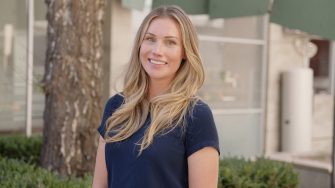Going global: How a UNSW degree shaped Lauren’s career aspirations
As a public health practitioner, Lauren Richardson is using her leadership and innovation skills to impact public health outcomes. Those skills were shaped by her education journey at UNSW.

